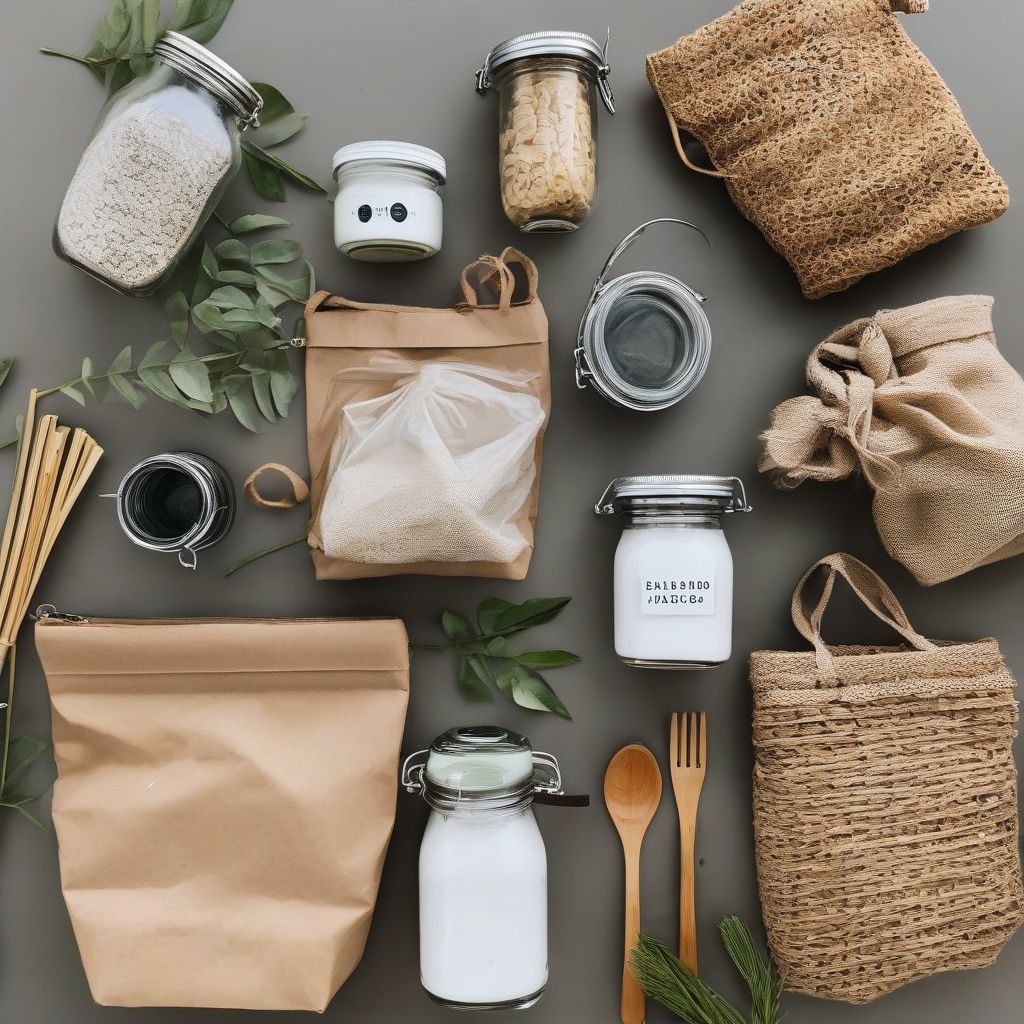Have you ever stopped to consider where your trash goes after it leaves your bin? It’s a sobering thought, right? The average American generates over 4 pounds of trash per day! Now, imagine a world where that garbage is drastically reduced, where our landfills shrink, and our planet breathes a sigh of relief. This is the promise of zero-waste living, and it all starts with how we shop.
Understanding Zero-Waste Shopping
Zero-waste shopping isn’t just about ditching plastic bags (though that’s a great start!). It’s a mindful approach to consumerism, encouraging us to reduce what we need, reuse what we have, and recycle what we can’t. Think of it as a journey, not a destination. Every step you take towards reducing your waste makes a difference!
The Perks of Embracing a Zero-Waste Lifestyle
The benefits of zero-waste shopping extend far beyond just helping the environment, although that’s a HUGE plus! Here’s how it can positively impact your life:
1. Environmental Hero: By reducing waste, you’re directly contributing to a healthier planet. Less demand for new products means fewer resources exploited and less pollution generated.
2. Healthier You: Zero-waste often translates to less processed food and more fresh produce. This shift towards whole foods can lead to improved diet quality and overall well-being.
3. Saving Money: Buying in bulk, using what you already have, and avoiding single-use items can significantly reduce your grocery bills over time.
4. Mindful Consumption: Zero-waste living encourages you to be more conscious of your purchases. Do you really need another plastic gadget, or can you make do with what you have?
5. Connecting with Community: Zero-waste living often leads to exploring local farmers’ markets, bulk stores, and community initiatives, fostering a sense of connection and belonging.
Where to Begin Your Zero-Waste Shopping Journey
Ready to embark on this empowering journey? Here’s a step-by-step guide to help you get started:
1. Audit Your Trash
Yes, it sounds unpleasant, but it’s an eye-opening exercise! Spend a week analyzing your trash. What are the main culprits? This will help you pinpoint areas where you can make the biggest impact.
2. Start Small, Choose One Area at a Time
Trying to change everything overnight can be overwhelming. Instead, pick one area to focus on first. Maybe it’s reducing single-use plastics in the kitchen, switching to reusable bags, or exploring a local farmers’ market.
3. Embrace the 5 R’s
These are your zero-waste mantras:
- Refuse: Politely decline what you don’t need (think freebies, straws, plastic cutlery).
- Reduce: Be mindful of your consumption. Do you really need another pair of jeans?
- Reuse: Get creative! Turn old jars into storage containers, use cloth napkins instead of paper, and repurpose items whenever possible.
- Recycle: Familiarize yourself with your local recycling guidelines.
- Rot: Compost food scraps and yard waste to reduce landfill waste and create nutrient-rich soil.
4. BYO: Be Your Own Everything!
Carry reusable bags, containers, water bottles, and cutlery to avoid single-use alternatives.
5. Explore Bulk Stores and Local Markets
Bulk stores allow you to buy only what you need, reducing packaging waste. Farmers’ markets offer fresh, local produce often with less plastic packaging.
6. Plan Your Meals and Shop with a List
Planning ahead helps you avoid impulse buys and reduces food waste.
7. Support Sustainable Businesses
Seek out companies that prioritize sustainable practices and packaging.
 Zero Waste Shopping Essentials
Zero Waste Shopping Essentials
Tips for Zero-Waste Grocery Shopping
- Produce: Skip the plastic bags! Bring your own reusable produce bags or simply place loose fruits and vegetables directly in your cart.
- Bulk Bins: Stock up on grains, beans, nuts, and snacks from bulk bins. Bring your own reusable containers and fill ’em up!
- Deli & Meat Counter: Ask if you can bring your own containers to be filled with cheese, meat, or prepared foods.
- Bakery: Some bakeries will allow you to bring your own reusable bags or containers for bread and pastries.
Don’t Be Afraid to Ask Questions
One of the most empowering aspects of zero-waste living is engaging in conversations. Don’t hesitate to ask questions at stores, restaurants, and even within your own circle. The more we talk about it, the more awareness we create!
[amazon bestseller=”zero waste lifestyle”]
Small Steps, Big Impact
Remember, zero-waste living is a journey, not a race. Start small, celebrate your successes, and don’t get discouraged by setbacks. Every single effort you make towards reducing your footprint is a victory for you and for the planet!
